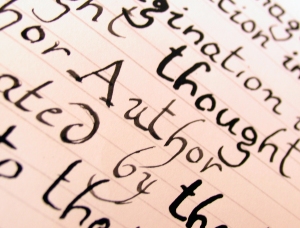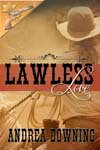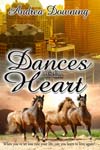No, not me personally, but hopefully if you’re a reader or writer, have been to school, have any education in American Lit. whatsoever, you may recognize that line. And no, it’s not, as my daughter suggested, from the Bible. How about: “It is a truth universally acknowledged, that a single man in possession of a good fortune must be in want of a wife.” Is that the romance writer’s motto? Or one of the most famous lines in English literature? How about this one: “Happy families are all alike; every unhappy family is unhappy in its own way.” That might be a bit tougher since it’s a translation and, depending on which edition of the book you have—if you have piled through its 1100 pages—it may not be exactly as you remember it. So let’s try “It was the best of times, it was the worst of times, it was the age of wisdom, it was the age of foolishness, it was the epoch of belief, it was the epoch of incredulity, it was the season of Light, it was the season of Darkness, it was the spring of hope, it was the winter of despair, we had everything before us, we had nothing before us, we were all going direct to Heaven, we were all going direct the other way…”
Whoa now, as we say in the western historical business. That’s not only the opening paragraph, that is all one dang sentence and I haven’t even quoted it in full. If I submitted that to my editor today I’d probably get back a request to break it into smaller sentences. So what makes a good opening line?  Is it the short and snappy, definitely memorable “Call me Ishmael?” Could it be the positive, highly quotable statements, offered in the middle two? Or the compelling resonance of the last? As writers we’re told to have a fresh, new voice and, to me, voice is what makes a good hook or great first line. Here is an opening of an equally famous book by the author of the last quotation, but I’ll bet my bottom dollar you have no idea from which of his many famous novels this comes: “Among other public buildings in a certain town, which for many reasons it will be prudent to refrain from mentioning, and to which I will assign no fictitious name, there is one anciently common to most towns….” Now, thanks to the wonders of Google, I can’t make this into a quiz, but my own reaction is that, that opening is not as individual, not as specific to the story, as the previous ones. While it may not exactly be a “stinker,” it lacks the distinctive voice necessary to make a great first line. It also doesn’t set the tone of the book, give you any idea where exactly it is taking place, who the characters may be, or any sense of what, exactly, is to come. Look at, “Last night I dreamt I went to Manderley again.” That one, brief sentence gives you a whole world of information; furthermore, it pulls you straight into the story. And, more than anything, it has a very certain voice. It seems to me that, nowadays, writers are so keen to get straight into the action as their editors tell them, that the memorable first line has been left by the wayside.
Is it the short and snappy, definitely memorable “Call me Ishmael?” Could it be the positive, highly quotable statements, offered in the middle two? Or the compelling resonance of the last? As writers we’re told to have a fresh, new voice and, to me, voice is what makes a good hook or great first line. Here is an opening of an equally famous book by the author of the last quotation, but I’ll bet my bottom dollar you have no idea from which of his many famous novels this comes: “Among other public buildings in a certain town, which for many reasons it will be prudent to refrain from mentioning, and to which I will assign no fictitious name, there is one anciently common to most towns….” Now, thanks to the wonders of Google, I can’t make this into a quiz, but my own reaction is that, that opening is not as individual, not as specific to the story, as the previous ones. While it may not exactly be a “stinker,” it lacks the distinctive voice necessary to make a great first line. It also doesn’t set the tone of the book, give you any idea where exactly it is taking place, who the characters may be, or any sense of what, exactly, is to come. Look at, “Last night I dreamt I went to Manderley again.” That one, brief sentence gives you a whole world of information; furthermore, it pulls you straight into the story. And, more than anything, it has a very certain voice. It seems to me that, nowadays, writers are so keen to get straight into the action as their editors tell them, that the memorable first line has been left by the wayside.
After writing all of the above, my nephew pointed out to me that there are two websites of famous first lines: http://americanbookreview.org/100BestLines.asp AND http://www.stylist.co.uk/life/the-best-100-opening-lines-from-books I promise you I had not checked either of these sites nor any other prior to deciding which first lines to include here, so I was absolutely delighted to find that my five good lines scored on both sites. What surprised me, however, was that nearly half—43 to be exact, in the case of the first site—were post-1960. While I had certainly read a good number of the modern novels, I hadn’t recalled their first lines at all. So, was that because the older lines were drummed into me as part of education or because they were just better?
You might write to me and say that we remember the lines from classics  and perhaps the truth is that we don’t write like authors of the 19th and early 20th Centuries. When I asked my daughter (double degree cum laude in Music and Latin American Studies; hence, not an English major!) if she recalled any first lines, all she could come up with was “Twas the night before Christmas…” So I’d like to know how many of you out there recognized without help any or all of the six first lines I’ve included above. If you’re a writer, I’d like to hear how much you sweat over your first line to make it a hook into the story? And I’d love to hear YOUR favorite first lines, particularly if they are more recent than these. On or about Feb. 21st, I’ll give away one copy of Loveland (opening line: “The clamor started at Ten o’clock when all the men were in their bunks.”) to someone who either ‘stumps’ me with a classic first line, i.e. pre-1960, I feel I should recognize, or enthralls me with a memorable post-1960 first line. And I promise not to cheat!
and perhaps the truth is that we don’t write like authors of the 19th and early 20th Centuries. When I asked my daughter (double degree cum laude in Music and Latin American Studies; hence, not an English major!) if she recalled any first lines, all she could come up with was “Twas the night before Christmas…” So I’d like to know how many of you out there recognized without help any or all of the six first lines I’ve included above. If you’re a writer, I’d like to hear how much you sweat over your first line to make it a hook into the story? And I’d love to hear YOUR favorite first lines, particularly if they are more recent than these. On or about Feb. 21st, I’ll give away one copy of Loveland (opening line: “The clamor started at Ten o’clock when all the men were in their bunks.”) to someone who either ‘stumps’ me with a classic first line, i.e. pre-1960, I feel I should recognize, or enthralls me with a memorable post-1960 first line. And I promise not to cheat!
Good luck!
***********************************************************************
I’m pleased to announce that Katherine Grey has won the ebook of Loveland for totally enthralling me with the first line of Nora Robert’s Carnal Innocence. Sincere thanks to everyone who took the time to comment and bring other great first lines, both classic and modern, to my attention and join in this conversation.

















I recognize several of the opening lines.
I never start writing my next book until I’ve got, IMHO, not only the perfect opening line but opening paragraph.
We’ve only got that one shot to hook the reader, agent, or editor.
LikeLike
Hi Lindsay. I believe this is common practice; at least it’s what we, as authors, are advised. But how many are actually truly memorable? Thanks for stopping by!
LikeLike
Enjoyed this blog and your comments about first lines. For me, I just start writing which is sometimes the hardest part. I do try to make the first line engaging, but it can always be changed later. Maybe the first line being memorable over time is not really as important as that it is engaging enough to keep readers going. And there’s also the rest of the book….
LikeLike
Hi Nancy. Well, I think “engaging enough to keep readers going…” is what is meant by a hook, isn’t it? You bring up a very good point about the first line being memorable over time; it’s certainly not as important as having written a memorable book! Now I wonder if there are any lousy books with really memorable first lines…
LikeLike
Hmmm. I don’t think I want to go on a search for lousy books with memorable first lines. But, to be honest with you, if I saw “Call me Ishamael” in isolation, I wouldn’t pick it out as a book to continue reading. So maybe your point is correct, it would never have been a memorable first line without the book to follow. Or maybe I can remember it because it’s so darn short. Have a great day!
LikeLike
Now you have me thinking–classics are books which have proven the test of time. The contemporary books with so-called memorable first lines, as noted on the two web sites I mentioned, may yet fade away. One site mentions Brdiget Jones’ Diary. It does have a great opening but will it be remembered in the next century? Any of it, including its first line… Thanks for your comments!
LikeLike
Great post. I think we can get so caught up with getting the beginning correct we forget the story we wanted to tell. I usually just write, then go back and write the first line again. One of my favorite, ‘Many things are not as they seem: The worst things in life never are.’ Doris
LikeLike
That is a good first line, one I didn’t know. I’ve tracked it down to Jim Butcher’s White Night. But it is sort of similar to Harper Lee’s “Things are never as bad as they seem.” Sounds like you have a good MO for writing. Thanks for coming by.
LikeLike
Great subject, Andi. When I write, I keep in mind that my first line determines whether my reader will continue reading or not. I look at the whole story, too, and synopsize in order to come up with that first sentence. My hook tends to be what the story is about.
However, when I read other authors, I have a tendency to remember the story more than I do the first line.
I have to admit, though, that I recognized only the first and last lines you mention here, but not those in between 🙂
LikeLike
Alice, it sounds to me as if you must have a very analytical mind if you synopsize in order to come up with that first line. I wonder how many other authors out there do that? Fascinating–the different methods we all use when writing! Thanks for your addition to the discussion.
LikeLike
I hadn’t thought myself as “analytical,” Andi 🙂 But I do think about the whole picture/story to come up with a short hook for my beginnings. This is one of the things I learned when I began writing. I would imagine writers use a variety of different methods to achieve the same thing. The same, but different.
LikeLike
Absolutely. There are many roads that lead to the same place! Some of us take the scenic route, others the highway…
LikeLike
Andi,
Great post. The fishing analogy is spot on. I surprised myself by recognizing most of your first line quotes. My recreational reading tastes generally don’t run to the classics. Hooks are important. The hook is the last stop on an eight second ride. You get the cover, the back cover tease and the hook to catch a reader. Eight seconds they tell us, about the same time as a qualified rodeo ride. The hook is important, though I think others have hit on what makes an opening line memorable. It’s the book that follows. I do put time into my hooks. I write with a ‘plot-line’ that gives me a sense of where I am going with the story. That helps me find a hook. I think the key to the hook is finding the right start for the story. By start I mean: where do you begin? When the hook sets, you reel the reader in to a compelling start to the story. Dusty Richards advised me to do a major rewrite to Case File: Union Pacific early in my writing career. It changed the start of the book. That set up the hook:: “How the hell could this happen? The cost overruns alone amount to tens of millions of dollars.” With that start Ulysses S. Grant was on his way to unraveling the transcontinental railroad fraud known as Credit Mobilier. Thanks again, Andi, for a thought provoking post.
LikeLike
So, from the authors represented here, it’s beginning to look as if a memorable first line is one of two things: it either serves as a clear hook straight into the story OR it is memorable simply because it is part of a dang good book. “Call me Ishmael” can’t be considered a hook, really; can it? But do we remember it because it’s short and individual or because it’s part of a great American classic?
Thanks for your input, Paul.
LikeLike
Love this subject Andi! By the time I write the first line of a story, I’ve thought the beginning through and through. I don’t stress about it too much because I usually go back and change it when I’ve finished the story. Nine times out of ten, the story ends up going somewhere I hadn’t planned….so I change the first line.
Some of my all time favorites are: “I had a farm in Arfrica at the foot of the Ngong Hills.” Isak Dinesen (Out of Africa 1937) And: “The explosion ripped through the house like a west Texas tornado and casued Biggie’s store-bought teeth to fall of the table and go sliding across the floor like a hockey puck.” Nancy Bell (Biggie and the Poisoned Politician” 1996)
LikeLike
You’re obviously a pantser like me, Karen, although i usuall have the beginning so set in my mind and it proves to be such a springboard that I rarely do more than tweak the first line.
I figured your first quote was Dinesen, but I LOVE the second. Was it a good book?
LikeLike
Hi Andi,
I will admit I only knew three of the first lines you quoted. I write my first line two or three times when I first start and then it changes multiple times throughout the revision process. Luckily, I’ve never had an editor ask for a first line to be changed. I’ve always liked the following first line from a post 1960 novel – “Summer, that vicious green bitch, flexed her sweaty muscles and flattened Innocence, Mississippi.”
LikeLike
Wow, Katherine, whoever thinks the Romance genre is low grade lit is in for a surprise, huh? That’s Nora Roberts, I’ve discovered…and it could almost be Faulkner. Thanks very much for your input!
LikeLike
I found your post very interesting. Here’s my opening line from a favorite classic: 3 May. Bistritz. __Left Munich at 8:35 P. M, on 1st May, arriving at Vienna early next morning; should have arrived at 6:46, but train was an hour late. Buda-Pesth seems a wonderful place, from the glimpse which I got of it from the train and the little I could walk through the streets. I feared to go very far from the station, as we had arrived late and would start as near the correct time as possible.
LikeLike
Ah! Count Dracula I presume… but I would never remember those lines despite loving the book and it being a great classic. Did you really have it down by heart Lisa?
LikeLike
I go crazy obsessing over the first line and eventually have to let it go. Afterall, I give it two or three paras before I decide.
LikeLike
Interesting, Kim. Do you then go back again and re-write at the end? How perfectionist we all are as writers! Thanks for your comment.
LikeLike
Great post, Andi! So fun to read those memorable first lines again and to realize, while I hadn’t thought of them in a while, they do bring the memories right back. I start a story by just writing, and my first lines and beginning are messed with and rewritten a bunch of times until it feels just right or inspiration strikes. My most favorite first line ever is (def pre-1960): “Once upon a midnight dreary, while I pondered weak and weary,
Over many a quaint and curious volume of forgotten lore,
While I nodded, nearly napping, suddenly there came a tapping,
As of some one gently rapping, rapping at my chamber door.”
LikeLike
Melissa, who couldn’t recognize those lines by Poe?! Wonderful to see them here and have your input. Thanks for visiting.
LikeLike
I don’t usually sweat about my first line because I tend to go back and change it as I get further into the story. Sometimes I’ll shift whole chapters around. But I do want my first line to grab my readers’ attention.
LikeLike
That’s interesting Sherry. I’m finding it really fascinating how we as authors have so many different methods of working. Thanks for stopping by.
LikeLike
I wish I could get a fantastic first line immediately, but sadly, I do have a tendency (like some of the other commenters) to change things during drafts 2 and beyond! I’d have to work very hard to be ‘satisfied’ with the first line in my first draft. Great post and as for those you’ve quoted (of which I recognise 3) I wonder if it’s just that people of a ‘certain/ aka my’ age have had more exposure to thise lines if the book has been made into a film or TV serial? And now for the big challenge! – Here’s a first line –
“An author ought to consider himself, not as a gentleman who gives a private or eleemosynary treat, but rather as one who keeps a public ordinary, at which all persons are welcome for their money.”
LikeLike
Very interesting comment–and what a first line. Despite the fact I have read Tom Jones (won’t quote entire title!) I didn’t remember that one, so you did stump me. In fact, I’ll admit I had to look up eleemosynary as well. Thanks very much, Nancy!
LikeLike
Good oh! Tom Jones is considered to be one of the earliest ever novels! ps The site ‘Stylist,,’ you’ve quoted above, for 100 best lines – I have to say I only remember reading 40 of them! (cringe) I’m off to try the other one. But anything during the last 2 decades I admit I’m more likely to NOT have read.
LikeLike
Pathetic – only 31 read and I would not have been able to actually remember a fraction of the actual first lines. Good challenge for tonight! Thank you!
LikeLike
Maybe you’ll have to sling ’em on the TBR pile?!
LikeLike
Post 1960: A fun favorite first line that’s probably easy to guess. I have an autographed copy of the book where it appears.
“When Augustus came out on the porch the blue pigs were eating a rattlesnake–not a very big one.”
If it’s okay to cheat, I’d like to offer the first line of the prologue in my novel, The Plainswoman.
“At her employer’s push, Amity Whitford rolled from the buggy seat and landed, staggering, in the dusty street before Great Bend’s temporarily deserted depot.”
LikeLike
Well, Irene, “Augustus” is the giveaway there but I’ll leave it to those sidewinders who haven’t read the book to look it up! Thanks for joining in!
LikeLike
Andi,
I favor “It was a Dark and Stormy Night”. Well if it’s good enough for Snoopy… 🙂 I suppose the best opening line is “In the Beginning God created the Heavens and the Earth.” Even if you don’t believe He did, it is still a good opening. I don’t really think about opening lines, I just write the story and then I go back over the story and rewrite/reword some of it, including the beginning sentences, several or more times. When it feels right to me, I quit. Then I sent it to my 3 daughters, who are all readers and not shy about critiquing my work. After that, I look for a publisher, if not wanting to use the one I had before or if the material isn’t a fit them.
Do you know this rather lengthy opening? He came into the world in the middle of a thicket, in one of those little hidden forest glades which seem to be entirely open, but are really screened in on all sides.
Interesting to me is that the which in this famous book should be that. Right?
LikeLike
Ah, Eunie, thanks so much for reminding me about “It was a dark and stormy night.” We use it so often as an example of bad writing, or purple prose, we forget it was actually the opening of Edward Bulwer-Lytton’s book, Paul Clifford: It was a dark and stormy night; the rain fell in torrents — except at occasional intervals, when it was checked by a violent gust of wind which swept up the streets (for it is in London that our scene lies), rattling along the housetops, and fiercely agitating the scanty flame of the lamps that struggled against the darkness.” Charles M. Schultz’ quote for Snoopy, as you also remind me, was even more purple!: “It was a dark and stormy night. Suddenly, a shot rang out! A door slammed. The maid screamed. Suddenly, a pirate ship appeared on the horizon! While millions of people were starving, the king lived in luxury. Meanwhile, on a small farm in Kansas, a boy was growing up.” Perhaps I should have ran a competition to see if anyone could out-do that!
I was stumped by your quote which I first thought might be a re-writing of Moses in the bulrushes! But I find it’s Bambi–quite a difference. Regarding which and that, I won’t go into a long discussion of restrictive and non-restrictive clauses here, but a quick look at a grammar book and the Merriam Webster Dictionary of English Usage seems to indicate that which is this instance is acceptable. But then I’m no expert…
LikeLike
I read it as a restrictive clause because it is essential to the sentence, or the but doesn’t work. If it read, …hidden forest glens, which they have up north, that seem to be entirely open, but are really etc…. I’m no expert either and often go by sound/flow, but when in doubt consult my old trusty Everyday English Handbook by Leonard Rosen. And I did do that when I questioned the which in the Bambi opening and I have looked at it again and have arrived at the same conclusion. If I’m wrong, can we chalk it up to a late, late night with little sleep? You see it was a Dark and Stormy night, and that I wouldn’t have minded so much if the rain had fallen in torrents, because rain is in short supply around here this year. Nor did I mind the dark, which I’m used to, but it was so darn stormy. 🙂 Just kidding!
LikeLike
Grammar–the bane of authors! Sometimes I think we could get so hung up on (whoops, mustn’t say up on!) it we’d never write. But you are correct!
LikeLike
Loved your column, Andi. I know all the quotes except the one about the buildings. You can keep your bottom dollar. One of my favorite first sentences is “In the late summer of that year we lived in a house in a vaillage that looked across the river and plain to the mountains.” Of course, I like the next several sentences as well. Like many others, I go back and re-work a first sentence, trying to find the best hook, the simplest language, a hint of the story to come.
LikeLike
Well, you got me there, Julie; I had to look it up. My only excuse, I suppose, is that I hadn’t read A Farewell to Arms for many years–though the same could be said of the Dickens, et.al. It’s so interesting how some hooks just stay in one’s mind while others don’t, and how that obviously differs from person to person. I’m going to think about re-reading Hemingway now. Thanks!
LikeLike
I’m lucky to have a big, independent bookstore in my town, but I don’t read the beginning of the books I buy. When I come home, I really look forward to reading the first line, and I’m a bit disappointed if it is so-so. I spend time rewriting my first line, but only after the entire draft is done. I get feedback on the opening. I always felt at a loss among writers because my degrees are in geology, not English, but I was delighted that I recognized all six classic first lines.
LikeLike
Wow, Pam, well done! Sounds like you were spending some time reading classics while doing all that studying. Thanks for coming by.
LikeLike